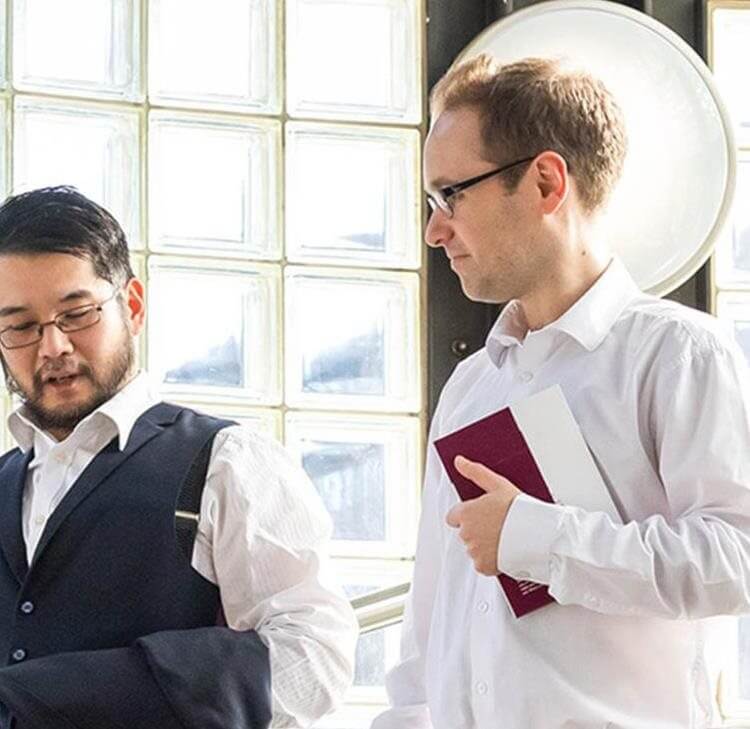Crew v Oakley was a case that gathered a lot of column inches in the general media, given the father unusual background and issues involved.
What happened in the case?
The facts of this case start in a fairly typical fashion:
- The testator (Carry) was born in 1930 and died aged 92 on 15th February 2022. Her husband had predeceased her in 2007.
- According to the claimants, David and Angela, they had been very close to Carry and Ron since they first met in 1962. That friendship continued over the years, they said, as shown by Carry appointing Angela as one of her executors in her 2003 will, then adding David as an executor in her 2013 and subsequent wills, and making a bequest of half of her residuary estate to them both in the last few wills.
- In 2020 Carry made what would be her final will. David and Angela remained executors, and they were also gifted a Caravan, and 25% each of the residuary estate, with the other 50% passing to Kevin (25%) and Jason and Leon (12.5% each), all three being distant cousins of Carry.
- Carry’s sister, Josephine, was excluded from the various wills entirely. The sisters had a particularly fractious relationship.
Then the case gets a little more atypical…
Carry had a falling out with David. This prompted her to see her solicitor again, in late 2021, with a view to making yet another will, this time one that excluded David and Angela.
Before that will could be signed, Carry went into hospital. Her solicitor went to see her in hospital, on the afternoon of 26th January 2022. She took with her (a) the original will of 2020 (b) the last draft from November 2021 (excluding David and Angela) and blank sheets of paper so she could write a wholly new will if needs be.
The solicitor’s file note of that visit takes up the story (with “HW” being the solicitor):
“(2) Carry knew why HW was there and also her name, and HW was confident that instructions could be taken. Carry was clearly in a lot of distress with her pain. She was on a vibrating bed and had boots on in respect of her bed sores. Carry was moaning and grimacing throughout the appointment that HW was with her, although the pain relief did seem to help a little.
(3) Carry not initially being 100% clear and said that her sister, Josephine Oakley, had attended her this morning. HW was surprised, as Mrs Oakley had said that she wasn't going to attend on Wednesday to see Carry, but clearly had changed her mind because she knew that HW was going to be attending that afternoon…
(4) Josephine has clearly been spending a lot of time with Carry over the last few days, and appears to be visiting her daily. Discussing the situation with Paul and Josephine. Carry saying that Josephine says that Paul is just after the money and out to get what he can. HW saying to Carry it doesn't matter what Josephine says- it's what Carry wants to do with her estate that matters. Carry saying 'Paul's been good to me. My sister hasn't'. HW agreeing with Carry that she has had a love/hate relationship with Josephine over the years, and Carry has told HW about the amount of money and hardship that Josephine has caused her over the years. Carry not denying this.
(5) HW explaining to Carry that her current Will was still in place, and this appointed her cousins Angela and David as the executors and also passed a lot of the estate to them. Carry saying that she definitely didn't want this to happen. HW advising Carry that if she didn't want this to happen then she could tear up her current Will but then she would be intestate. HW confirming that if Carry was intestate then Josephine, as Carry's sole and closest relative, would be entitled to all of the residuary estate. Carry confirming that Josephine was her only sibling and no other previous siblings were part of the family.
(6) HW saying to Carry that if she was adamant that she didn't want David and Angela to deal with the administration and to inherit from her estate, that she could tear up her old Will. HW had brought the original with her, and Carry was happy to do this. Carry was able to tear around three quarters of the way through and then HW helped her tear up the rest of it.”
Carry died around two weeks later, and a fight for control of her estate ensued; Josephine asserted Carry had died intestate, and that she was entitled to be personal representative alone, with David and Angela seeking to rely on the 2020 will as appointing them validly as personal representatives.
What were the issues at trial?
By the time of the trial, the key questions for the court to determine on this issue became:
- Was the will revoked by “destruction” i.e. by the deceased tearing three quarters and being helped by her solicitor to tear the rest?; and
- If the will was revoked by destruction, did the deceased have the mental capacity to do so.
Was the will revoked by “destruction”?
In answering the first question, the court needed to determine whether Carry had sufficiently destroyed the will, whether she authorised her solicitor to complete the destruction (or merely acquiesced in the same), and whether she had the requisite intention to destroy the will by doing so.
The judgment contains a very useful summary of various points of law in this respect (paras 49 to 60). Of particular interest is a section of Theobold on Wills which is worth quoting in full:
“"There must be an actual, not a symbolical burning or tearing of the paper upon which the will is written… Although s.20, after referring to burning and tearing a will, continues, "or otherwise destroying the same", these words must be understood as intending some mode of destruction ejusdem generis, not an act that is not a destroying in the primary sense of the words… Cutting a will with the intention of revocation is effective… However, it is not necessary that the will be totally destroyed, burnt, or torn in pieces. If the will is burnt or torn in the slightest manner, this will be a good revocation if joined with the declared intent. As will be seen, the nature of the destruction may be evidence of the necessary intention. But an unsuccessful attempt to destroy does not revoke… Furthermore the act of destruction, in order to be effectual must not be left incomplete. The testator must have done all that he intended in order to effect destruction. If he is interrupted from completing the act or acts of destruction that he was performing, there is no revocation."
It was submitted in this case that Carry could not have revoked the will, as the “destruction” was incomplete without the assistance of the solicitor. That submission was ultimately rejected by the court; not surprising given the wording of s.20 of the Wills Act 1837:
"…no will or codicil, or any part thereof, shall be revoked otherwise than as aforesaid, or by another will or codicil executed in manner herein-before required, or by some writing declaring an intention to revoke the same and executed in the manner in which a will is herein-before required to be executed, or by the burning, tearing, or otherwise destroying the same by the testator, or by some person in his presence and by his direction, with the intention of revoking the same."
Josephine would still however need to show that Carry had given the solicitor the authority to complete the tearing of her will.
On that issue, the court accepted the solicitor’s evidence that “when Carry could not complete the tearing, Mrs Webb looked at her and asked if she could help her tear the remainder. Carry, looking directly at Mrs Webb, nodded. Mrs Webb placed her hands upon Carry's and helped her so the tearing was completed.” It was submitted by David and Angela’s counsel that there was no authority that a “nod” could be sufficient “direction”. The court however found in favour of Josephine on this point i.e. that a nod could be (and was) taken as a “positive and discernible” expression of Carry’s authority.
Given the trial judge accepted the solicitor’s evidence generally, it is of no surprise that it was held that Carry did have the requisite intention to revoke her will by the destruction of it.
Did Carry have mental capacity to revoke her will?
So the final hurdle for Josephine to overcome was that of capacity - did Carry have the requisite mental capacity to revoke her will?
The test for capacity for revocation is the same as that for making a will i.e. the test in Banks v Goodfellow. It was of particular note that just moments after helping Carry complete the tearing of the will, the solicitor felt she did not have capacity to make a new will. The expert in the case (Dr Series) agreed that the first and second limbs of the test for capacity were met, but his view was that the third limb (weighing the claims of potential beneficiaries etc) could not be established. So at first glance, Josephine would seem to have been facing an uphill challenge perhaps.
But… the trial judge rejected Dr Series’ finding in this respect, and found on the facts that Carry had weighed up the claims of beneficiaries, and could therefore meet the third limb of the test in Banks. On that basis the trial judge was content to find that Carry did have capacity, albeit in a very narrow window before she subsequently (probably) lost capacity to make a new will.
Another useful reminder that experts do not have the final say on the issue of capacity, and that their evidence is only ever part of the picture.
Contact

Daniel Edwards
Partner
daniel.edwards@brownejacobson.com
+44 (0)330 045 2533





















